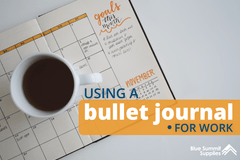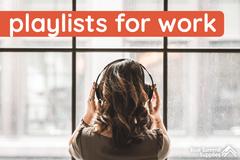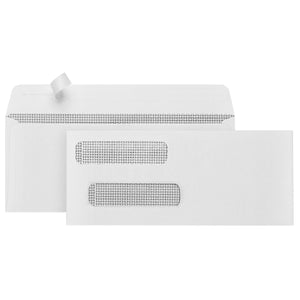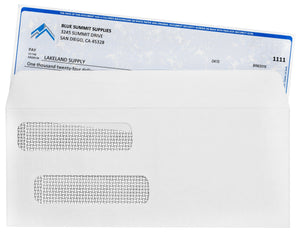It’s dangerous to expose your eyes to too much blue light. Of course, if you work in an office or tech field, you may not have a choice about how often you have to use a computer. Luckily, there are alternatives to quitting your job, including blue light glasses and blue light apps that control the blue light emitted by your devices. So, what are blue light glasses, what do blue light glasses do, are they effective, and what other solutions are available?
If you frequently use a computer screen at night and are having trouble getting to sleep, it could be due to excessive blue light exposure. This might mean you should invest in blue light glasses, or you may simply need to curb your screen habits before bed. Read on to learn more about blue light glasses, including other solutions that minimize screen time and blue light exposure.
What are Blue Light Glasses
Blue light blocker glasses have specially crafted lenses that are designed to filter out harmful blue-violet light rays, so we can continue about our everyday lives without damaging our eyes and messing with our sleep.
Before we continue, it’s important to remember that not all kinds of blue light are bad. The blue wavelengths emitted from the sun are actually good for us during the day as they improve our mood and boost our energy, reaction times, and attention.
Too much exposure to artificial blue light from our laptop, tablet, and smartphone screens can cause headaches, eye strain, negatively impact our circadian rhythms, and potentially contribute to the development of diabetes, cardiovascular problems, and depression.
This is troubling, considering most of us experience quite a lot of blue light in our day-to-day lives. We check our phones as soon as we wake up, sit at our desks on our computers all day, spend our breaks scrolling through Instagram or Twitter, Zoom with colleagues, friends, and family, sit in front of the television in the evening, and conclude our day with a little more phone time before bed. Sound familiar?
Don’t feel bad—many of us are in exactly the same boat. While we should all consider reducing screen time in our personal lives, we need to work, and we need to keep our lines of communication open.
Do Blue Light Glasses Work?
Honestly, the answer is a resounding maybe. First and foremost, according to the American Academy of Ophthalmology, there is no evidence that blue light actually damages our eyes. Plus, eye discomfort caused by digital screens isn’t necessarily caused by blue light at all, but rather by a much broader issue called Computer Vision Syndrome (CVS), also referred to as digital eye strain.
That said, prolonged exposure to blue light at night does slow the production of melatonin in our brains, which definitely disturbs our sleep.
Sleep deficiency has serious consequences. Humans need sleep. Maintaining a healthy, regular sleep schedule is vital to our mental, emotional, and physical health. Taking steps to protect our sleep is important, and blue light glasses can help. Research conducted by the University of Toronto “suggests that shift workers and night owls could perhaps protect themselves if they wore eyewear that blocks blue light.”
If you’re struggling with headaches, eye strain, dry eyes, or other eye irritation, you should consider some alternatives (listed below) before investing in a pair of blue light glasses. If your job requires you to work on a screen late into the night, or if it’s the only time you can Zoom with your loved ones, blue light glasses may be the solution you’re looking for.

Why Blue Light Glasses Are Beneficial
While the jury is still out as to whether or not blue light glasses prevent eye damage, strain, or headaches, blue light at night isn’t good for us. Sleep is very important. If you need to work or communicate via your screen in the evenings, blue light glasses will ensure your melatonin production and circadian rhythms aren’t disturbed.
Of course, if you have a habit of consuming caffeine or sugar-rich beverages before bed, don’t count on blue light glasses solving all of your sleep problems. 🍭☕️🍺
Types of Blue Light Glasses
When purchasing any blue light glasses, make sure they filter out 90% of blue light or higher.
There are plenty of eyeglasses out there that claim to provide blue light protection when they don’t actually filter enough blue light to make a difference. Unfortunately, blue light glasses are an extremely trendy industry right now, with plenty of questionable products on the market.
Scientists seem less convinced on the results of low-end blue light glasses, but many reviewers claim miraculous results, including reduced headaches and eye strain. Do your research before making any significant investment. Fortunately, many options are available for the cost of a takeout lunch, so you can test them yourself with limited financial consequences.

Amber Glasses to Block Blue Light
Glasses with amber lenses absorb short-wavelength blue light before it can get to your eyes. The downside to these glasses is they will turn everything orange. The upside is that clear lenses don’t filter blue light as well as their amber cousins.

Uvex Blue Light Blocking Glasses
Uvex blue light glasses also have amber lenses. These are closer to safety glasses than everyday glasses.

Blue Light Filter Reading Glasses
If your peepers are slowing down and you already need reading glasses, you’ll need to ensure the blue light glasses you buy contain your proper prescription or can be added overtop of your glasses. Otherwise, you’re putting even more harmful strain on your eyes. This can be a costly solution, so consider curbing your evening habits in the ways we’ve suggested below before making a purchase.
Blue Light Glasses vs. Other Solutions
Before you drop money on blue light glasses, there are a number of other simple solutions that can aid your sleep and reduce eye strain.
Follow the 20-20-20 Rule to Reduce Eye Strain
Take regular breaks from your screen by using the 20-20-20 rule. Every 20 minutes, take your eyes away from the screen and focus on an object at least 20 feet away from you for at least 20 seconds. This will give your eyes a break and help them refocus.

If you want to learn more, the American Academy of Ophthalmology recommends seven strategies for combating eye strain.
Use a Blue Light Filter on Your Screen
A range of computers, including Mac, Windows PC, and Chromebook, come with a blue light filter already built-in that you can activate in your settings. If this feature doesn’t come with your device, there are a number of downloadable blue light filters available.
Blue light filters shift the display to warmer colors, diminishing the blue light that’s typically emitted by the normal display. It’s an undeniably less cumbersome and much less expensive way to combat blue light exposure at night over purchasing and remembering to wear a new pair of eyeglasses.
Build an Evening/Bedtime Routine
If you don’t need to work late into the night, but you’re still glued to your devices, it may be time to consider developing a healthier bedtime routine.
- Pick a bedtime, and stick to it. This way, you can build a routine around when you need to prepare yourself for bed.
- An hour before your selected bedtime, turn off each of your screens to help your body and mind wind down.
- Don’t try to sleep with a television on in the bedroom. If you like to sleep with ambient sound, turn on a fan or invest in a white noise machine instead.
- Reduce the light in your house in the evening, as this will also help your body recognize that it’s nearly time to rest.
- Keep your devices out of the bedroom. Invest in an alarm clock or watch if you depend on your phone for an alarm.
- Before bed, pick up a book. Successful people swear by reading before bed. Reading relaxes us, which is exactly what we need to help us fall asleep. Check out our list of Professional Development Books for a Successful Year.
More from Blue Summit Supplies
💡 Working From Home With Children, Pets, and Other Distractions
💡 How to Choose a Playlist for Work
We’re always looking for new ways to improve productivity and employee wellness. Follow our office supplies blog for the latest tips, office strategies, product comparisons, and more.
If you have any questions or want to talk to someone about office supplies, email us or connect on Twitter, Facebook, or Instagram.
 For more informative articles about office supplies, subscribe to our email newsletter!
For more informative articles about office supplies, subscribe to our email newsletter!
Never fear, you won't begin receiving daily sales emails that belong in a spam folder. Instead, we promise a fun weekly roundup of our latest blog posts and great finds from across the web. And if you lose interest, it's always easy to unsubscribe with a single click.










